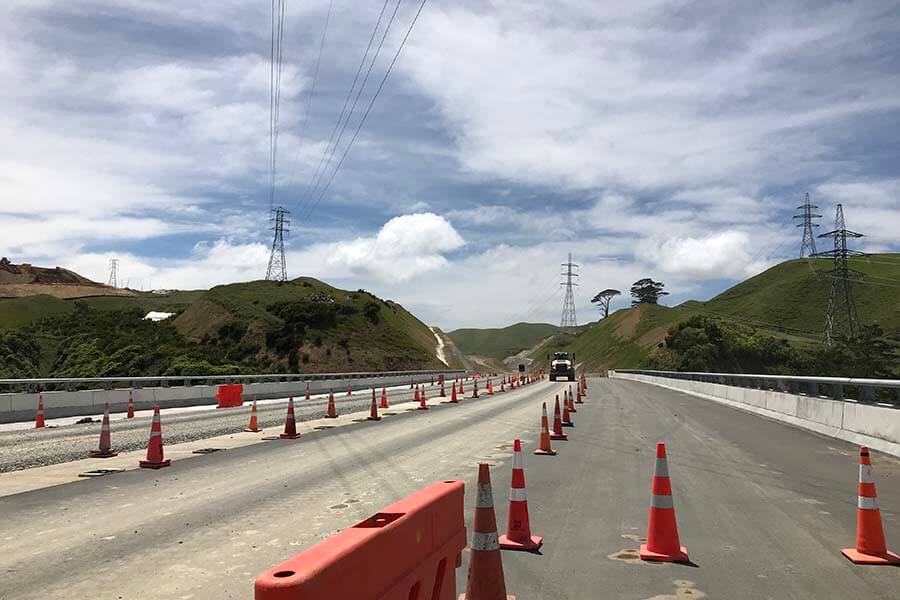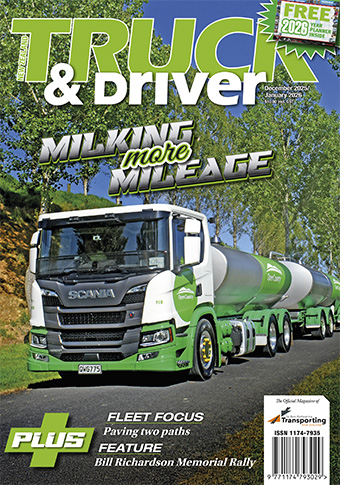Ia Ara Aotearoa Transporting New Zealand News


COVID must not hold up essential infrastructure developments
Cynically released on a Saturday morning and buried amongst blanket news coverage of Auckland’s Delta outbreak was the Government’s announcement that they had scrapped the bike bridge over the Waitemata Harbour as part of Auckland’s Northern Pathway Project.
Despite already spending an almost unbelievable $51million on planning for the bridge, I guess it is good news that, at last, the Government has listened to public feedback and abandoned what was little more than a $800m vanity project. Remaining funding will instead be reallocated to other transport projects in the city that reduce emissions and traffic congestion. When it comes to Auckland’s transport woes, there is no shortage of projects urgently in need of funding, including important freight projects, such as the Mill Road Highway and East-West Link.
Speaking of urgent projects, Transmission Gully, the $1.25billion motorway into and out of Wellington, originally planned to open in 2020, then delayed until September 2021, is now not even guaranteed to open by Christmas.
Admittedly alert Level 3 and Level 4 restrictions, and supply chain constraints associated with Auckland’s lockdown have delayed the project, but there is significant public interest in when Transmission Gully will be open for business.
...Cynically released on a Saturday morning and buried amongst blanket news coverage of Auckland’s Delta outbreak was the Government’s announcement that they had scrapped the bike bridge over the Waitemata Harbour as part of Auckland’s Northern Pathway Project.
Despite already spending an almost unbelievable $51million on planning for the bridge, I guess it is good news that, at last, the Government has listened to public feedback and abandoned what was little more than a $800m vanity project. Remaining funding will instead be reallocated to other transport projects in the city that reduce emissions and traffic congestion. When it comes to Auckland’s transport woes, there is no shortage of projects urgently in need of funding, including important freight projects, such as the Mill Road Highway and East-West Link.
Speaking of urgent projects, Transmission Gully, the $1.25billion motorway into and out of Wellington, originally planned to open in 2020, then delayed until September 2021, is now not even guaranteed to open by Christmas.
Admittedly alert Level 3 and Level 4 restrictions, and supply chain constraints associated with Auckland’s lockdown have delayed the project, but there is significant public interest in when Transmission Gully will be open for business.
Despite repeated requests, Waka Kotahi New Zealand Transport Agency won’t provide any indication as to when the road will actually be open to traffic. Waka Kotahi says it is still in negotiations with the builder to understand the full impact of COVID-19.
This sounds like typical bureaucratic obfuscating to me. Waka Kotahi will almost certainly know if a Christmas opening is achievable or not, so why can’t they release the information they do have and inform Wellingtonians about what to expect.
A year ago, Ia Ara Aotearoa Transporting NZ hosted a Zoom presentation with economist Cameron Bagrie, who gave a rundown on the current state of affairs in a COVID-inflicted environment.
Bagrie told the industry that one of the things that worried him the most was “the ridiculousness of how Government thinks about infrastructure investment.
“What’s good policy in infrastructure? Analysing what we need so we have a rough idea from year to year what those needs will be 10 years out. In NZ, it’s an absolute lottery from year to year.”
He said there was a need to come up with a bit of certainty regarding a proper framework for infrastructure so businesses know they have a commitment down the track.
“We’ve been through this with the roading contractors; all the Roads of National Importance stuff was coming to an end and they had uncertainty as to the next stages. This is going on across the board and needs fixing.
“If the Government using its balance sheet creates more debt in the near term, then so be it, we’ll sort that out. Hopefully the Infrastructure Commission under Alan Bollard really gets turbocharged over the coming four to five months. Now’s the time to do it,” Bagrie added.
To be honest, even a year later I don’t think we are any further towards solving these issues. Policymakers seem more determined to appease the environmentalists, cyclists and anti-road lobby than futureproofing our infrastructure for a growing population and economy.
We can’t use COVID as an excuse not to upgrade and maintain our roading network, because as we can now see by the reopening of overseas economies, the world does not stand still. What we need is proper planning for infrastructure that looks well into the future and investment that matches that. If you build a road, it is no good that being at capacity the day it is built – it needs to be planned on a 20 to 30-year horizon.
Finally, I just want to address the recent departure of OCANZ (Owner Carriers Association of NZ) members National Road Carriers and the NZ Trucking Association (formerly the Canterbury Owner Drivers Association) from Ia Ara Aotearoa Transporting NZ.
As a national organisation, the Road Transport Association NZ, which represented four of the five regional groups within Transporting NZ, was conscious of a desire from operators to have one voice represent the industry at a national level and avoid the ongoing duplication across the associations.
They proposed a new structure to OCANZ members NRC and NZ Trucking. In the end, those two organisations decided to go their own way. That was their choice and I respect that.
Despite this reorganisation, Transporting NZ remains committed to advocating for transport operators’ interests in Wellington. We continue to proactively engage with ministers, MPs and government officials as rules, regulations and laws that affect road freight transport are developed and implemented.
Transporting NZ also holds ownership of Te ara ki tua Road to success and will continue operating this essential industry traineeship scheme, in partnership with government and transport operators up and down the country. The traineeship remains accessible to all suitable transport operators.
I know so many in our industry, like me, had hoped for greater consolidation of industry leadership and will be disappointed at the current situation.
I can, however, reassure them that my priority is to make sure Transporting NZ evolves to be even more effective in advocating on behalf of transport operators as we look to an uncertain post-COVID future.



 + EQUIPMENT GUIDE - FREE
+ EQUIPMENT GUIDE - FREE
